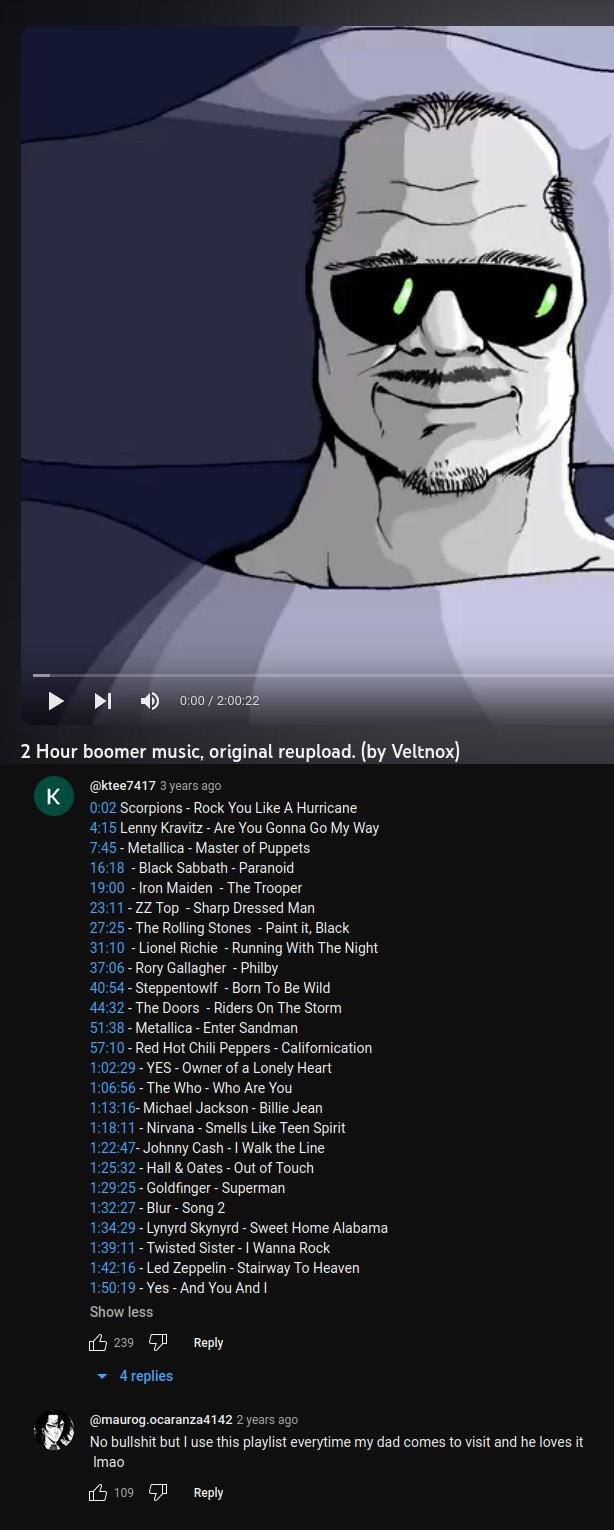this post was submitted on 21 Oct 2023
55 points (100.0% liked)
music
18510 readers
1 users here now
Post well known tunes into the megathread. Post fresh vibes individually.
🎵 Hexbear music streaming den 🎶
founded 5 years ago
MODERATORS
you are viewing a single comment's thread
view the rest of the comments
view the rest of the comments

But the root of a word does not.
At some point, it is okay to hear a teenager use a term incorrectly and mention the derivation of the term.
you can correct a teenager or whatever, and they may or may not listen to you, but if they and the rest of their generation keep using a word how they understand it, then the word essentially changes definition, and the people who write the dictionaries are forced to update their dictionaries to reflect popular usage. This is how it's always worked, and it's why an English dictionary from 1600 has a lot of different meanings than an English dictionary from 2023. It's why you can see a word often has way different meaning in its etymology than it does from its current use. Even important words. not tryna give you a hard time. I've just been told that, if people collectively start using a word differently, it can decouple from its etymology. I can think of plenty of examples
so if a bunch of teenagers decide that "boomer" means anyone 20 years older than them, then that's fine. They'll just have to accept becoming boomers themselves eventually
Descriptivism isn't the be all end all of what a word ought to mean. The easiest examples are slurs. For example, it doesn't matter if the vast majority of (cis) people do not consider the t-word to be a slur because frankly, their trash tier cis opinion doesn't matter. All that matter is trans people prescribe the t-word a slur, and whatever trans people prescribe it so, then it is so.
boomer isn't a slur and that's what we were discussing